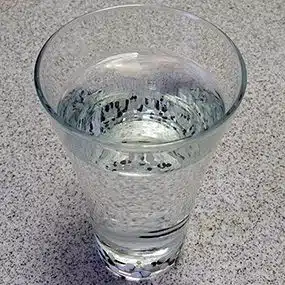Besides aging, there are many things that can increase the likelihood of dry mouth (xerostomia). These include medications, radiation of the head and neck and systemic disease. Treatment for dry mouth can increase the quality of life for those who have difficulty swallowing or speaking. Dry mouth can make denture retention difficult. This can reduce good nutritional food choices. While there is no cure for dry mouth, there are many products that can ease symptoms. Patients with dry mouth can benefit from home care instructions and frequent dental exams to evaluate lesions and caries at their earliest phase. Fluoride rinses or gels can help prevent tooth decay, and high-risk patients can benefit from fluoride and chlorhexidine rinses. Chewing xylitol gum can increase salivary flow and protect the teeth from decay. Denture wearers should remove them at night and be instructed on their cleaning and care to reduce the possibility of oral candidiasis. When there is residual salivary flow, stimulation of the glands during the day can be accomplished by pilicarpine and cevimeline. Sipping water may reduce some symptoms. Salivary substitutes may be useful—as will adding a humidifier to the bedroom. Salivary substitutes are available over the counter at pharmacies as sprays, rinses, tablets and swabs. (Dental Abstracts, Vol. 52, Issue 4, 2007)
Your Mouth Is Warning You
Your lips, teeth and gums can warn you about major health risks. For example, gum disease multiplies your risk of developing heart disease by seven. “Unhealthy gums result from an active bacterial infection, so there’s probably something else going on in your body that’s not good,” says Domenick Zero, DDS, director of the oral-health research institute at Indiana University. Research has linked diseases of the mouth to problems in the pancreas, stomach, sinuses and more. Your mouth is easier to explore than your organs, and symptoms appear early enough for you to stop the damage.
Bad Breath
“A lot of cases of bad breath don’t originate in the mouth,” says Ted Raybould, DMD, a professor of dentistry at the University of Kentucky. “One common source is the sinuses.” Inflammation of your nasal passages can be caused by allergies or a chronic infection, and can breed bad breath in two ways. First, a stuffy nose forces you to inhale and exhale through your mouth. This dries up saliva that would otherwise kill bacteria, the source of most bad breath. Second, post-nasal drip is a potent producer of halitosis. “Mucus flows down the back of your nose and onto the back of your tongue,” says Mel Rosenberg, Ph.D., a microbiologist at Tel Aviv University. This accumulation feeds bacteria, which in turn breed volatile sulfur compounds, that create a foul oral odor.
Cold Sores
In a study published in the journal Circulation, researchers tested people for an antibody that shows prior infection with herpes simplex 1 (HSV1), then monitored them for 4 years. Those whose blood contained the antibody were twice as likely to suffer a heart attack. Here is why. HSV1 lies dormant in the nervous system until stress, illness or fatigue cause cold sores. Researchers suspect that when the virus reactivates, it triggers a nerve response in the coronary artery that may lead to dangerous clotting.
Bleeding Gums
Bleeding gums can indicate an infection. While tooth loss and heart disease are known risks, gingivitis has also been linked to cancer. In a recent Harvard study of more than 52,000 men, those with infected gums were 63 percent more prone to pancreatic cancer than those with inflammation free mouths. Researchers blame the bacteria, which they believe reacts with digestive chemicals to create fertile conditions for cancer-cell growth.
The Sugar Link
Sugar has been found to worsen gingivitis by feeding the plaque that causes it. A recent study in the American Journal of Clinical Nutrition revealed that people who regularly added sugar to coffee, tea or cereal were 69 percent more prone to pancreatic cancer than those who didn’t.
Additional Reading:
Dealing with Dry Mouth (2019)
